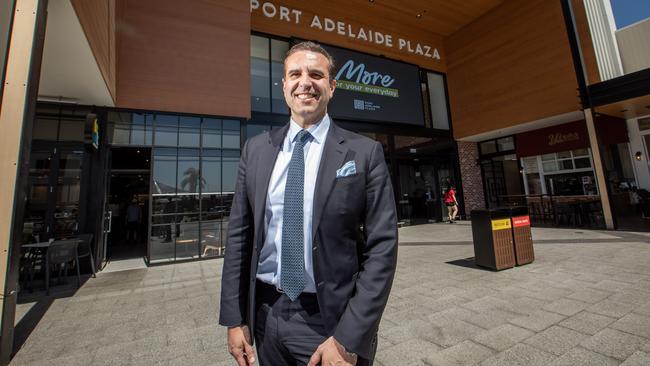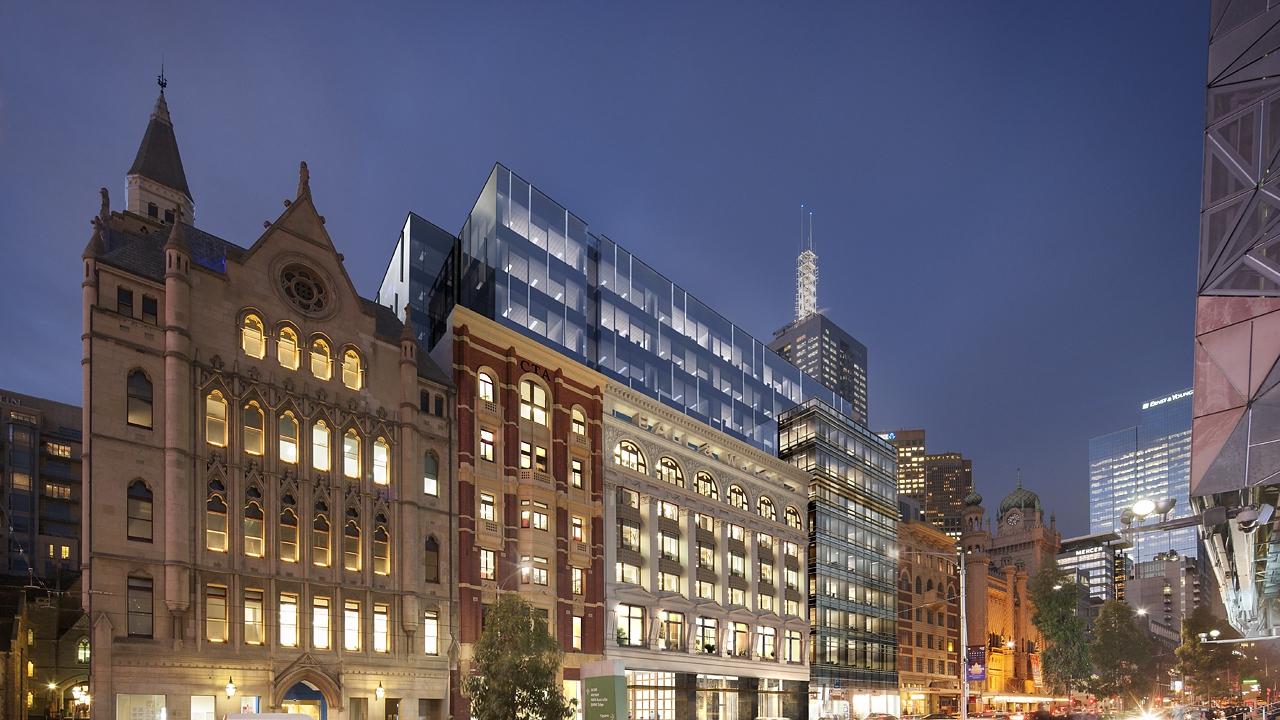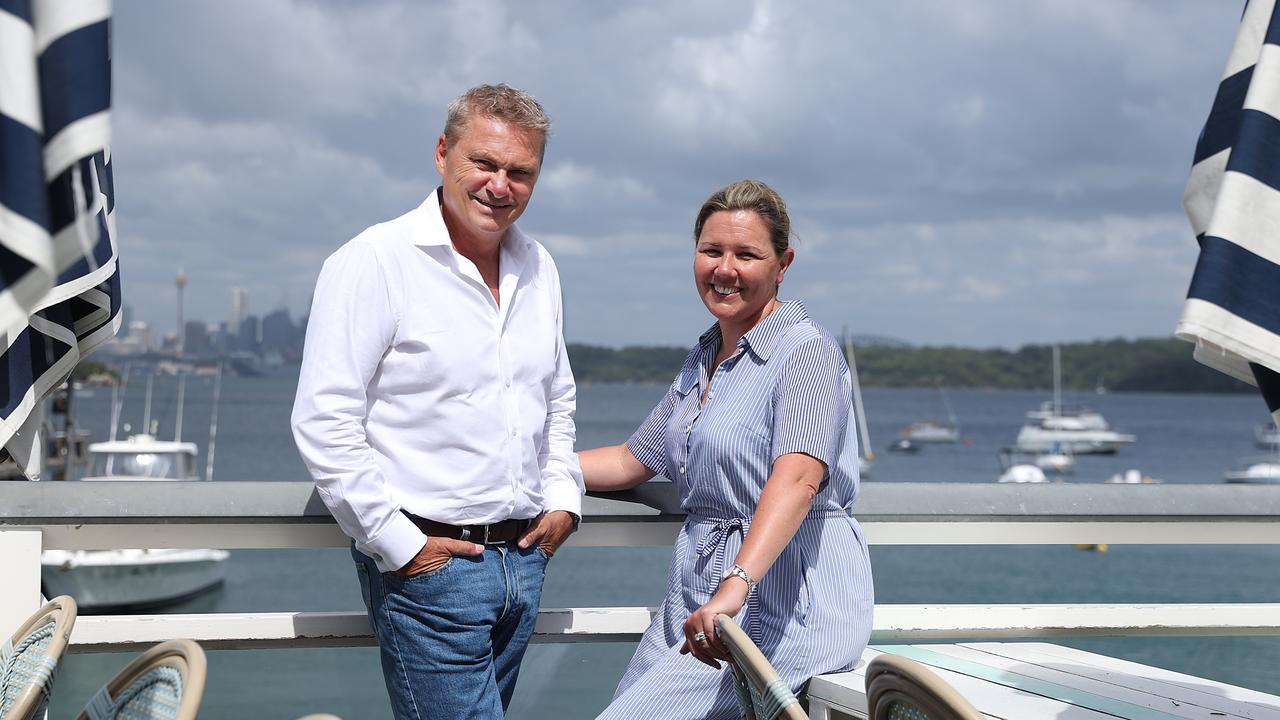Shaun Bonett’s secret sauce for malls: quality and convenience
Want to know what will work for retailing in the future? Consider how Aldi sells its tomato sauce, says Shaun Bonett.

Want to know what will work for retailing in the future?
Consider how Aldi sells its tomato sauce and, also, how a customer could purchase a new suit or dress in the evening but have it delivered to their house the next morning because they’d headed out for dinner or a nightclub.
Shaun Bonett, the billionaire shopping centre landlord and commercial property owner, is musing about the future of retailing, and how old-fashioned bricks and mortar needs more than ever to be aware of the lack of time customers have these days.
In some cases, if you do it well, customers don’t mind having decisions made for them as long as a product is good and it is convenient. Which is exactly what buying that dress or suit in the evening is all about, too.
“The concept of people going shopping and carrying around bags, particularly around the evening, will become a thing of the past, for example,” Bonett says.
“There’s a reduction in malls of sales between 4-6pm … so why not make a digital experience? You pick the items [in store] and then the delivery is executed the next day.
“Particularly in that millennial customer, they are wanting that flexibility to go shopping and then go out at night.
“To be frank, this is a low-hanging-fruit opportunity for retailers to be embracing. It is giving their customers greater flexibility to buy what they want and not be limited by what they can carry.”
Bonett is celebrating 25 years in business with his Precision Group, which owns a collection of 11 commercial buildings in Australia and New Zealand, ranging from shopping centres in Adelaide and Melbourne to office blocks in Sydney and pubs in Brisbane.
He also owns a 55 per cent stake in digital e-giftcard business Prezzee, which launches in the US and the UK on Monday after going from zero to 3 million customers in Australia in four years, while giving Bonett valuable data insights into consumer spending habits.
But he still has most of his assets in bricks and mortar.
Rather than considering an exit from the retailing sector as some others entrepreneurs have in recent years, Bonett is doubling down.
His comments came as official figures this week showed retail sales growth had stalled in October, with the annual pace of growth falling to just 2.1 per cent, which is barely above inflation.
But Bonett says retailers and landlords have to understand that technology has led to the modern consumer insisting on top-class service — and if they don’t deliver, they are doomed.
“In 25 years I have never worked harder and the scale and pace of change and of customer … expectations has never been so intense,” Bonett says.
“In the consumer world there’s tech companies which have created expectation and the sense of entitlement, everything should be verging on intuitive, convenient and pleasurable. And if it is not, the company is not doing a good job.
“We have got these expectations that have been created in the consumer’s psyche. They demand and expect the best.”
Bonett is trying to deliver that in his malls, with some simple yet effective strategies. Precision has spent $45m revamping Port Adelaide Plaza, the first property ex-lawyer Bonett bought, and has also overhauled the 40-year-old Shore City mall in Auckland.
In Port Adelaide, Bonett has knocked down a big chunk of the centre, introduced a childcare centre, a big Aldi and a cafe precinct. More parking, including more shaded spaces, and easier access was introduced, as were bigger advertising and information screens.
Why do all this? Because, Bonett says, Precision surveyed customers face to face and found that what they said they wanted was different to what his team had planned for the centre.
“Relationships are key. You don’t establish relationships with your customer by sending them emails and text,” he says.
“It’s amazing when you ask a customer what they like, most are willing to stop and tell you.
“If they are in a rush they will tell you that for sure, but if they’ve got a few minutes they are very willing to tell you what you want.”
It was a similar situation across the Tasman at Shore City, for which Bonett paid $NZ90m in August 2016 when it had a department store, more than 70 shops and a couple of smaller anchor tenants.
“We actually asked customers what they wanted, the top three things they would change or introduce,” Bonett says. “There were an overwhelming amount of customers who said we need a supermarket. It left no doubt what we needed to do … and we settled on the New World brand and opened two weeks ago.”
Bonett admits what he is doing is “not exactly rocket science”, but he is constantly surprised by landlords and retailers who don’t keep track of customer habits or even ask them what they want, because a big increase in technology has meant people demand the best and demand it quickly.
So successful has the strategy at Shore been that visitation numbers this month are up 30 per cent, a strong number at a time when shopping malls are meant to be dying.
Bluntly, Bonett says is it time for retailers to use data and analytics to focus solely on what customers want to buy, how they want it delivered, the length of time they are shopping for and how easy it is to get in and out of a centre quickly.
“You do that by not adopting the approach that is common in the shopping centre, which is basically just filling shops. It is taking much deeper analysis into what is happening in that shopping centre,” he says.
“It means the days of providing the shopping centre that has six of the same uses in various categories, for example, is not necessarily the way to go. Big is no longer best. What is best in a centre is something to enable a customer to get in and out in a quick and efficient way.”
Bonett says other strategies such as having dispatch centres in malls in a shared service across multiple retailers could be an option. It is all about convenience and giving the customer what they want, if they trust you.
Which leads back to Aldi and its tomato sauce. Bonett marvels at how they do things differently to just about every other retailer in that “it will sell one brand of tomato sauce and nothing else. It is good and it sells at a very cost effective price. It is one of its top 10 items. It is giving the customer very little choice, they pick it up and decide how many to buy. But it is very convenient.
“The important lesson is there is increased appetite in the customer to be making less choices, and to be trusting brands and companies they know to tell them what is best for them. If you can do that in a shopping centre environment you are going to be able to be deliver a good experience.”




To join the conversation, please log in. Don't have an account? Register
Join the conversation, you are commenting as Logout